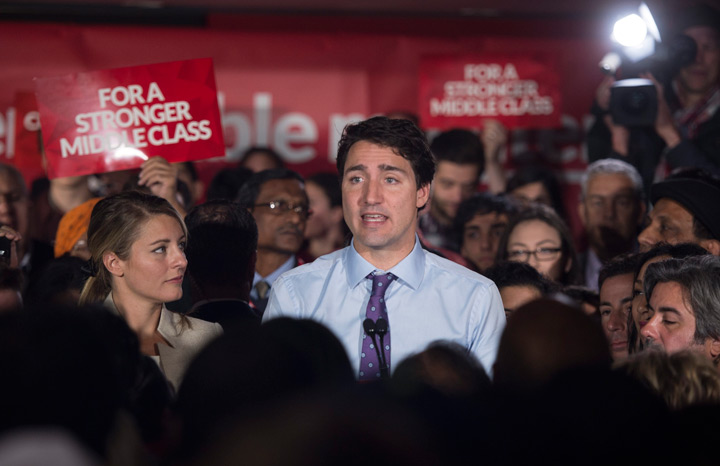Liberal campaign co-chair Dan Gagnier resigned this week after giving advice to TransCanada on how to lobby a future – possibly Liberal – government on oil and energy policy.

In a press conference Thursday, party leader Justin Trudeau said Gagnier’s actions were inappropriate and he supports the resignation.
From revelation to resignation, the scandal lasted about seven hours.
That’s one reason why Memorial University politics professor Alex Marland thinks it won’t have much of an impact on the vote.
“On any given day, the average person is not paying attention to political news. If it’s out there a number of days, that would be different.”
And Marland says the Liberals are helped by the parade of axed candidates preceding Gagnier, most of whom left because they said something shocking on social media years ago.
“When you have a co-chair of a campaign in the last days of an election of a party that’s looking to form government resigning – that’s at a much higher level than someone making some stupid remark on Twitter years ago. And yet because those people are being cut off… it almost desensitizes us. It makes us think this is on the same scale. The person has resigned so it’s the end of it.”
Scandals need power

Get daily National news
Scandals can reverberate, says Wilfrid Laurier University politics professor Barry Kay – but it has less of an effect when the people implicated aren’t in power.
“Justin Trudeau, having never been in power, the notion of a rotten, tired government that has fallen into corrupt ways doesn’t stick so much,” he said.
READ MORE: Trudeau calls Gagnier’s actions ‘inappropriate,’ supports adviser’s resignation
Even tying this to previous Liberal scandals – as the Conservatives have tried to do, referencing the sponsorship scandal – is unlikely to have much of an effect, he said, because voters who already associate the Liberal party with scandal were unlikely to vote for them anyway.
“Swing voters and people who are younger don’t remember that stuff,” he said. “I would hypothesize that people who are now thinking of voting for the Liberals don’t know who Gagnier is and have never had the sense that Trudeau is arrogant in power because he’s never been in power.”
Identifying the issue
It also helps that this a complex ethical question to parse, says Queen’s University doctoral candidate Tim Abray.
“It’s a bit of an inside-baseball story. It’s the kind of thing that’s tough to explain quickly to someone who doesn’t follow the intricacies of how campaigns are structured, who’s in charge of what, what people’s responsibilities are or are not, those sorts of things,” he said.
For him though, the emails do cross a line.
“I think it confuses the effort to form a government with assumptions about becoming the government,” he said.
“It’s not surprising that these conversations would break out. What’s problematic is the lack of recognition that having this kind of a conversation might not go over well with people because it seems to imply an assumption that you’re going to form a government and that you’re going to have a say in these sorts of things.”
And while lobbying advice tends to raise people’s suspicions about political influence, it’s hardly unusual, Abray said.
“The reality of governance is that you have these sorts of conversations all the time with people because you are in the business of weighing and balancing interests. So the conversation itself, in the right sort of context, is not so much a problem as long as nothing in particular is promised.”
The issue’s complexity and lack of easy visuals make it less likely to gain traction in the media, Marland said.
“There needs to be something for television more than anything. Video. There needs to be photographs. Without visuals it’s a lot harder for journalists to tell a story,” he said.
“There need to be images of somebody running away from the media, not talking to them, or heading somewhere or whatever. I’m not getting the sense that’s the case.”
Awkward timing
Regardless of the relative importance of its cause, the resignation of a high-ranking adviser days before an election is less than ideal, Marland said.
“If there’s ever bad news you always want it to happen early in the campaign so people have forgotten about it by the time voting day occurs. The whole Mike Duffy, Nigel Wright matter is an example of that,” he said. However, unless more information or pictures come out, he doesn’t think this will have a big impact on the Liberals.








Comments